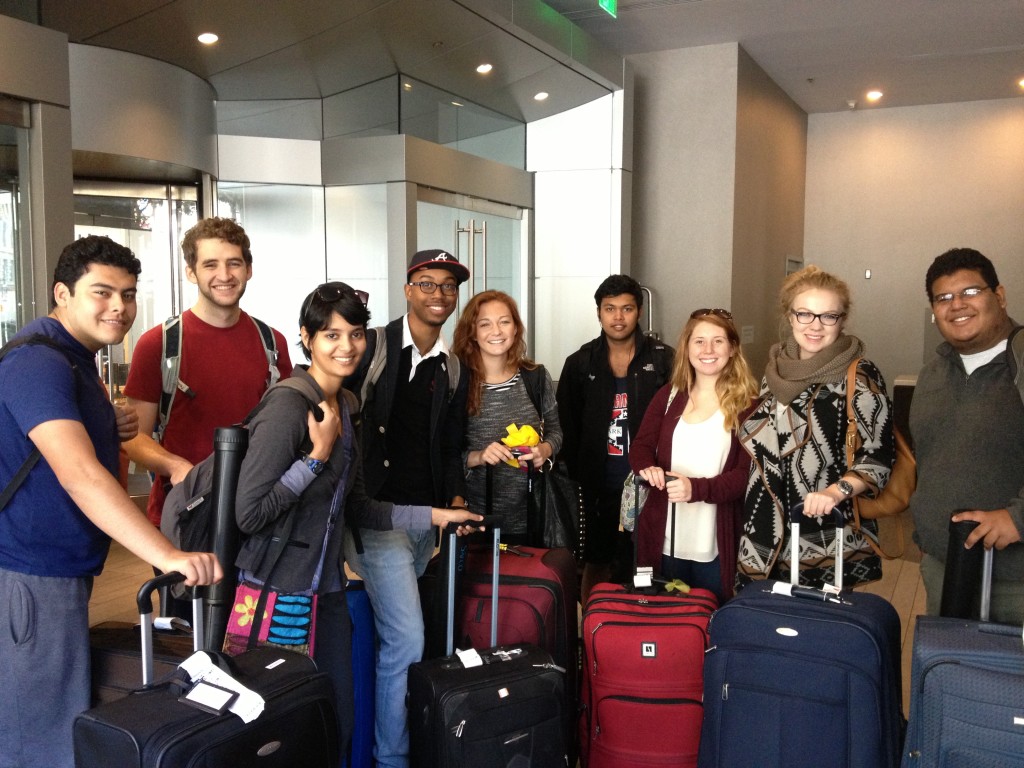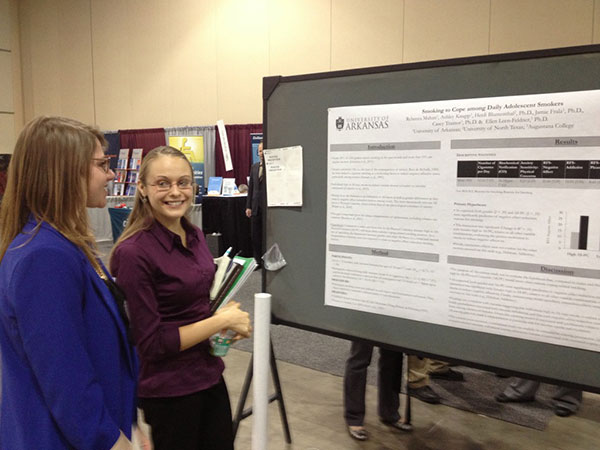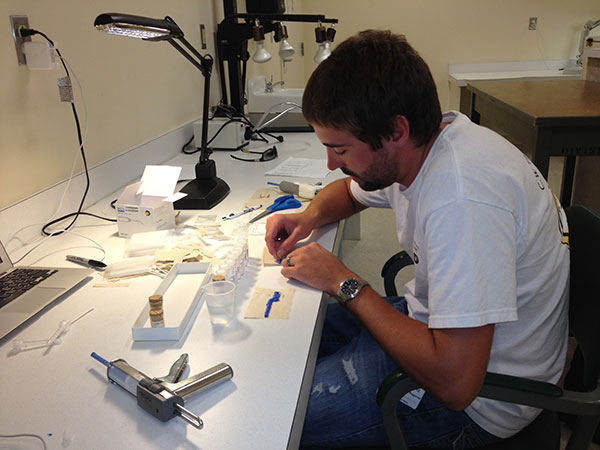
A group of engineering students on the way to San Francisco for the 2013 annual meeting of the American Institute of Chemical Engineers.
You’ve received an Honors College Travel grant to attend the annual meeting of the American Society for Horticultural Science in Waikoloa, Hawaii. Or maybe you’re a history major, and you’ve got a travel grant to fund research at the Lyndon Baines Johnson Presidential Library in Austin, Texas.
Congratulations! Presenting your work at a conference, conducting research in an archive, or any type of research travel off campus present great opportunities to kick start your career. Just keep in mind that this is not the time to hit Waikoloa beach, explore all of the fabulous new malls or check out Austin’s fabled music scene.
Below, we offer some advice on how to make the most of this opportunity (and work in some of the tourist stuff, as well).

Rebecca Mahan, honors psychology and anthropology major, attended the Association of Behavioral and Cognitive Therapies 46th Annual Convention in National Harbor, Md. to present a poster on populations at risk for problematic tobacco use.
Conferences and Annual Meetings
Attending a conference in your discipline is an amazing opportunity to learn and network. The professor you chat with at the welcome reception may be the person who reviews your med school application six months down the line, with the power to say yea or nay to all of your hard work.
- Presenting your work at the conference? Practice presenting (not reading) your talk – and then practice some more, in front of a friend or your faculty mentor, if s/he has time. Make sure your poster or any other visuals you’ve prepared are free from any typos or errors. Arrive early to your session to make sure your materials will work on the computer that is available.
- Plan to put in eight-hour days at the conference. Study the schedule before you go, and figure out which talks you want to attend. That way, you won’t be overwhelmed by the wealth of options available.
- Do attend the receptions, dinners and outings organized by the conference. These are great opportunities to meet others in your field and learn about their research. But keep in mind that this conference where you’re meeting future employers, professors and colleagues is NOT the time to drink alcohol from the open bar or party until the wee hours. You won’t be at your best at 2 a.m. (or the next day).

Charlie Withnell, honors biological anthropology student, uses dental impression material to make casts of 300 tiny shrew incisors at the Smithsonian Museum in Washington, D.C.
Research in Archives or Labs
- Contact the archive or lab before you book your flight. You want to make sure that the archive will be open when you plan to visit, and confirm that the collections you need to access will be available to you.
- Share a brief summary of your research topic with your contact at the archive before you go. That way, they will be prepared for your visit and may suggest some other collections that may have useful information.
- Ask if there is anyone you should contact when you are in town. There may be a local person you could interview, or another researcher in the area who could share valuable leads or feedback.
In short: do your homework ahead of time, and make the most of this research travel opportunity.
Which isn’t to say you can’t work in some beach time if you have had the good fortune to land in Hawaii. Book your flight so that you can spend a day at the beach before the welcome reception or after the conference wraps up. You’ll come back with a tan and tons of new ideas and professional contacts that will serve you well, long after your tan has faded.

